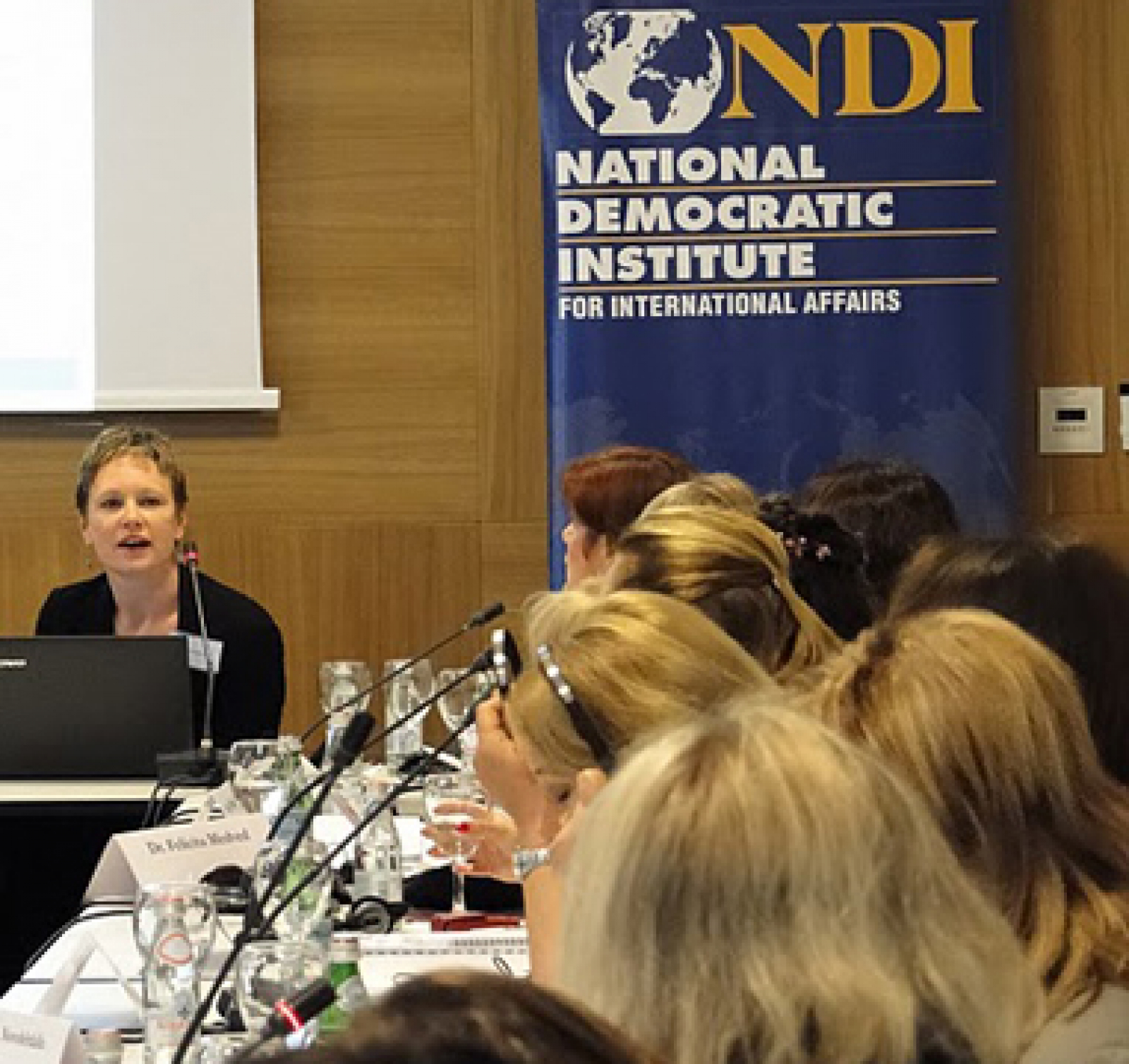
SHARE
In Europe’s Balkan region, where citizens are trying to overcome ethnic conflict, political polarization and struggling economies in hopes of joining the European Union, women are seizing a larger role in democratization efforts. Increasingly, they are working together across ethnic and partisan lines to inject new life into stalled politics.
It’s a new undertaking for women who have traditionally been excluded from the political process. To help in this new-found mission, NDI brought together women politicians from liberal parties throughout Central and Eastern Europe to talk about how to bring down barriers to women’s political participation and advance policies that address issues such as unemployment and poverty, which are among their priorities.
One example was a discussion about how political parties need to champion education policies that will help women become entrepreneurs. “Women in the region want to start up their own businesses, but they don’t have the confidence to do it and feel they need support along that path,” said Edita Stefanic, a professor at the University of Osijek in Croatia, who participated in the dialogue. “We can be there for each other in the region, learn together and exchange the best practices.”
“It became clear to us during the event that our sister parties should set up, develop and maintain a network within the region that would strengthen and support women,” said Sabina Mujezinovic, vice president of the Liberal Democratic Party (LDS) of Bosnia and Herzegovina. “As liberal parties – which support individual responsibility and initiative – we should be recognized as promoters of women’s entrepreneurship and become leaders in the creation of policies at all levels supporting this goal.”
Following the conference, the women’s wing of the Croatian Social Liberal Party launched a women’s entrepreneurship Internet portal to provide information and assistance related to starting and managing a business.
Participants also explored how to elect more women, take more prominent positions within a party and build leadership skills. As liberal women, participants tended to favor competitive efforts to win seats beyond policies, such as quotas or women’s wings, that provide for structural guarantees for women in politics. Still, participants concluded that special measures are often necessary to overcome barriers to gender equality.
At the conference, Susan Markham, NDI’s director for women’s political participation, talked about the Institute’s experience with different tactics in promoting women in public life around the world. She discussed the contribution of women in building more representative and responsive governments that are more accountable to citizens.
The gathering was part of NDI’s regional political party development initiative in Central and Eastern Europe, funded by the National Endowment for Democracy. NDI works with liberal, social democratic and conservative parties to bring “sister” parties from other parts of Europe to join in the conversations. Among other objectives, the initiative helps connect women across borders. Germany’s Friedrich Naumann Stiftung and the Dutch People’s Party for Freedom and Democracy supported the conference as co-sponsors.
Related:
- Albanian Women Finish Political Leadership School with Chance to Test New Skills in May Elections»
- Young Women Gain Confidence, Mentors from Leadership School in Iraq»
- Leadership academy prepares young women prepares young women for political careers in Burkina Faso»
- Leadership academy raises aspirations for young Middle Eastern women»
Published September 27, 2011


